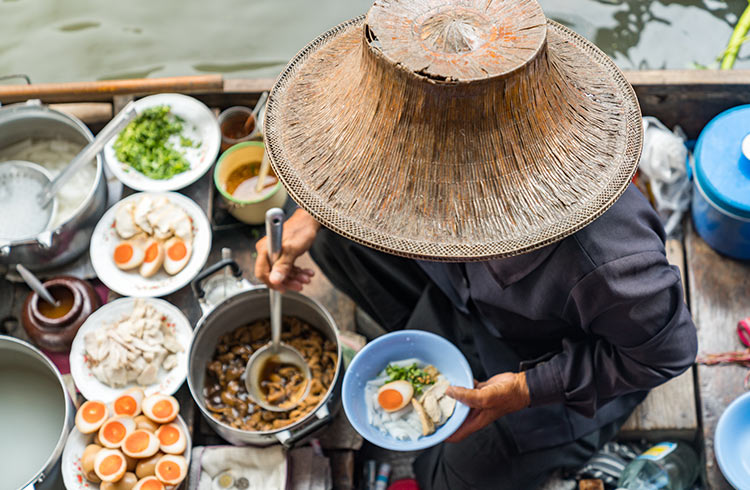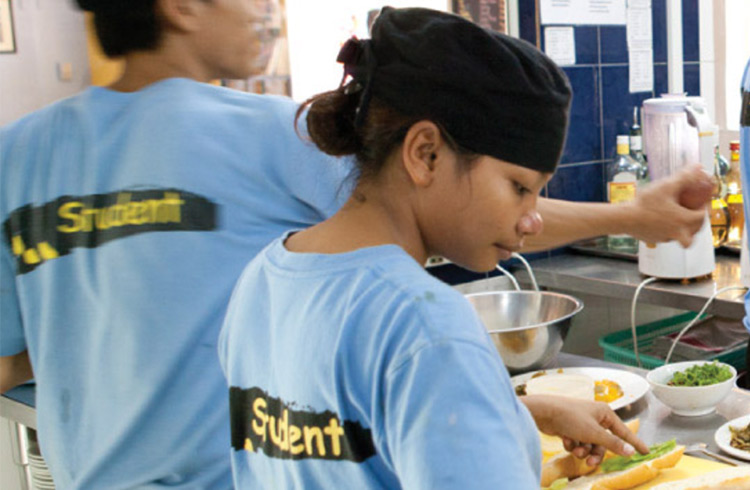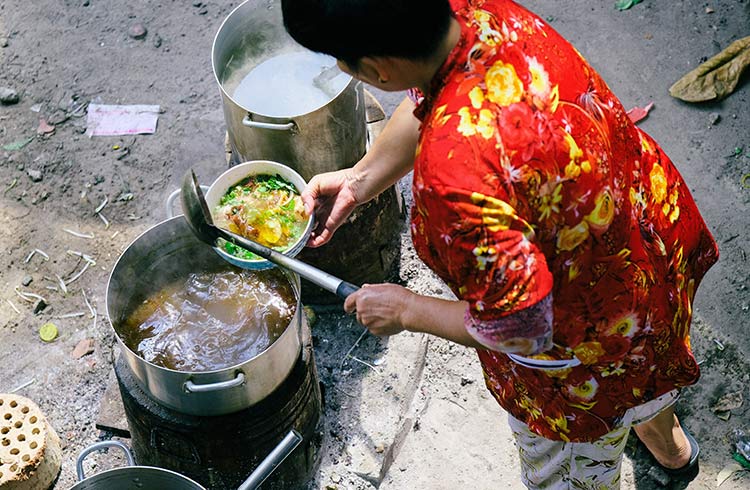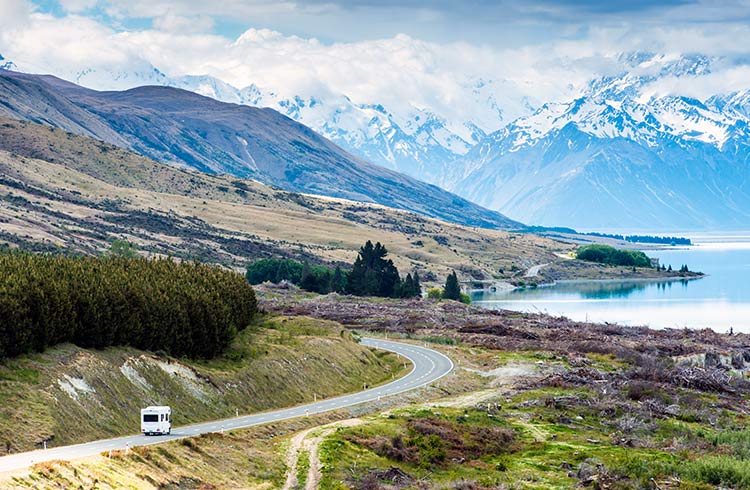How to Eat Local (and Like a Local) When You Travel
Eating locally produced food on your travels may seem like small potatoes, but the benefits are far-reaching.
 Photo © Getty Images / Nigel Killeen
Photo © Getty Images / Nigel Killeen
Eating local is good for you as a traveler, for the communities you visit, and for our planet. Given that we’ve now faced this world-changing event – we’re glaring at you, coronavirus – supporting local producers, eateries and communities is more important than ever.
- Familiarize through food
- Meet, greet and eat with the locals
- Make it up to Mother Earth
- Seize the seasonal
- Do the farmers a favor
- Get a taste for traveling the slow-food way
Familiarize through food
A ‘dirty-water’ hotdog from a cart on a busy street corner in New York City, the blare of taxis nearly drowning out your order. A hawker armed with a small blowtorch gently searing some octopus at the Ningxia Night Market in Taipei. The textures of creamy camembert on a crisp-on-the-outside, soft-on-the-inside freshly baked baguette wrapped in wax paper as you stroll the Champs Élysées in Paris.
These are the moments that color your travel, titillate your tastebuds and make a mark on your memory. According to a survey from Booking.com, 35 percent of travelers take vacations specifically to try local delicacies. And sure, these experiences are about the local food, but they’re also about the personality of the place you’re visiting.
By eating at locally owned restaurants, visiting food stands, tasting unique street foods and strolling through (and sampling from) fresh food markets, you not only get to enjoy new gastronomic experiences, but also to communicate with the locals, learn what they’re proud of (and known for) and take in the area’s vibe.
Meet, greet and eat with the locals
What’s more, by eating local and traditional foods, you’ll gain an understanding and appreciation for a region’s customs, its history and its regional ingredients. It’s even better when you can do this in the company of the locals themselves, who can share their insider’s knowledge, answer your questions, and, with luck, maybe even become your friends.
But connecting with locals doesn’t happen through a guide book. Instead, tap into your social networks for friends – or friends of friends – who’ve been where you’re going or, even better, know someone there. Ask them where to go to eat where the denizens eat – and the places to avoid to prevent a bout of gastro interrupting your travels!
Browse through websites, such as eatwith.com and BonAppetour, which are devoted to experiences that facilitate eating with locals. Share a meal, take a food tour with a local guide or book a traditional cooking class. Maybe cheese is your ultimate vice? Find a cheese-making class. Visit a winery’s cellar door and indulge in a tasting – or six! – of this year’s special vintage. Embrace the mud and participate in a rice harvest.
Make it up to Mother Earth
In addition to the culinary, cultural and personal benefits you reap from eating locally, our environment likewise stands to gain. The fewer food miles food travels, the better, because transport won’t use as much fuel or generate as many greenhouse gases.
The average item of food in America has traveled 1,500mi [2,400km] from the farm to your plate,” says Michael Pollan, food journalist and author of In Defense of Food. “It’s burned up an incredible amount of fossil fuel just to get there … For the consumer to understand how much energy goes into their food, I think all they have to understand is, if it’s local, it’s less.”
It’s also better for you. Because it spends less time traveling from point A to point B, local food is fresher, loses fewer nutrients in transit and sustains less spoilage.
Seize the seasonal
The same is true for eating seasonally when you travel. “Fresh food tastes better when it’s in season for two reasons,” says Judy Davie, The Food Coach and author of The Greengrocer’s Diet. “It hasn’t been kept in storage for months, and it hasn’t been sprayed, atmospherically controlled and packed to survive long-distance travel. The further food travels and the longer it is stored, the more flavour and nutrients are lost. It also costs more.”
So, while you’re on the road, find a local farmers’ market if you can. You’ll enrich your experience, save money and help local producers. And every season, there’ll be something new to try. “Plus, aren’t farmers’ markets fun!” says Davie.
Do the farmers a favor
Pollan is on the farmers’ bandwagon, too. “There are a great many other benefits to eating locally, besides conserving energy,” he says. “There is the very important benefit of keeping farmers in business.
By buying local food when traveling and keeping that money in the area, you’re supporting local farms and producers; enabling employment for farm workers and those in the local food-processing plants and distribution centers; and generally buoying the community’s economy.
Also, if the region is trying to build an agritourism following, as is becoming increasingly popular, you’re doing your part to help while you’re there. Plus, your positive word of mouth post-visit can encourage more travelers to the area.
Get a taste for traveling the slow-food way
All these tips and practices illustrate that the slow-food movement isn’t just an at-home crusade; it’s just as important when you’re traveling. A slow-food mindset encourages travelers to connect with a new place in a more sustainable way.
The Slow Food Manifesto offers sage advice on how to keep this front of mind when you’re eating on the road: “We can begin by … advocating historical food culture and by defending old-fashioned food traditions.”
Do some research on local dishes and what’s in season when. Avoid supermarkets and convenience stores, opting instead for your vacation spot’s local and farmers’ markets. When you do dine out, avoid tourist traps and patronize local restaurants that showcase homegrown cuisine and are passionate about what they serve.
To end on another astute note from the Slow Food Manifesto: “Let us rediscover the rich varieties and aromas of local cuisines.” Let us, indeed.
Related articles
Simple and flexible travel insurance
You can buy at home or while traveling, and claim online from anywhere in the world. With 150+ adventure activities covered and 24/7 emergency assistance.
Get a quote


2 Comments
With my sister I have recently taken on a global walking holiday company for women . We are just about to launch with some trips in 2022 . Supporting local is essential for us - and treading as lightly as we can on the planet.
I would love to link some of your great articles to our website . We are just re doing it to relaunch this month.
Also I wondered if I could write something about us for your newsletter?
Best wishes , Ginny
Great read! Thanks!
I try to cook local, shop all ingredients local and try local spices as much as possible. This helps me to experience my travel destinations much more intense. It also saves a lot of travel budget compared to expensive restaurant dining each day! There are helpful recipe platforms to support local cooking. I really like https://yummy.world Here you can easily explore local dishes on a nicely illustrated map, plan your menu and save all required ingredients to a shopping basket - even in local languages. So you can shop all ingredients in local supermarkets without missing a thing. :)